News
SEE Black Market Dollar To Naira Exchange Rate Today 27 April 2024

SEE Black Market Dollar To Naira Exchange Rate Today 27 April 2024
What is the dollar to naira black market exchange rate? See the black market dollar to naira exchange rate today below. You can swap your dollar for naira at these rates.
The official naira black market exchange rate in Nigeria today including the Black Market rates, Bureau De Change (BDC), and CBN rates. Please note that the exchange rate is subject to hourly fluctuations influenced by the supply and demand of dollars in the market. As of now, you can purchase 1 dollar at a certain rate now, however, it’s important to keep in mind that the rate can shift (either upwards or downwards) within hours.
What is the dollar to naira black market exchange rate?
The local currency (abokiFx) opened at ₦1,400.00 per $1 at the parallel market otherwise known as the black market, today, Saturday, 27 April 2024, in Lagos Nigeria, after it closed at ₦1,420.00 per $1 on Friday, 26 April 2024.
Dollar to Naira (USD to NGN) Black Market Exchange Rate Today
Buying Rate ₦1,380
Selling Rate ₦1,400
How does the black market dollar-to-naira exchange rate compare to the official rate?
The official exchange rate of the US dollar to the Nigerian naira, as of today, 27 April 2024, is ₦ 1,165 per US dollar.
Date Currency Buying(NGN) Central(NGN) Selling(NGN)
4/25/2024 US DOLLAR 1164.343 1164.843 1165.343
4/25/2024 POUNDS STERLING 1451.8193 1452.4427 1453.0662
4/25/2024 EURO 1245.9634 1246.4985 1247.0335
4/25/2024 SWISS FRANC 1272.2279 1272.7743 1273.3206
4/25/2024 YEN 7.48 7.4833 7.4865
4/25/2024 CFA 2.0612 2.0712 2.0812
4/25/2024 RIYAL 310.4335 310.5668 310.7001
4/25/2024 DANISH KRONA 167.0339 167.1056 167.1773
4/25/2024 SDR 1532.6247 1533.2828 1533.941
4/25/2024 YUAN/RENMINBI 160.6744 160.7434 160.8124
This is the rate that the CBN uses for its transactions and interventions in the foreign exchange market. The official rate is also the basis for the exchange rates of other foreign currencies, such as the euro, the pound sterling, and the Chinese yuan.
The difference between the black market rate and the official rate is called the parallel market premium. The parallel market premium indicates the degree of divergence between the official and unofficial markets, and reflects the level of confidence in the naira and the CBN’s policies.
Factors Influencing Foreign Exchange Rates
Here are some of the causes of the dwindling dollar-to-naira exchange rate.
Inflation Rates: It is well known that inflation directly impacts black market exchange rates. If the Nigerian economy can be stabilized and inflation is controlled, the naira will benefit; however, if the naira continues to fall, it may indicate that food and other necessities are becoming more expensive daily.
Interest Rates: Another tool to keep an eye on is interest rates. If the interest rate at which banks lend money rises, it would harm the economy, causing it to contract and, as a result, the value of the naira to fall.
Government Debt: National debt can impact investor confidence and, as a result, the influx of funds into the economy. If inflows are high, the naira exchange rate will rise in favour of the naira.
Speculators: Speculators frequently impact the naira-to-dollar exchange rate. They stockpile money in anticipation of a gain, causing the naira to plummet even lower.
Conditions of Trade: Favorable trade terms will increase the value of the naira to the dollar, although Nigeria is currently experiencing a trade deficit. Everything comes from China, India, and the majority of Asian countries.
News
‘We Gave You Enough Time,’ Wike Orders Residents To Evacuate From Right Of Way

The Minister of the Federal Capital Territory, Nyesom Wike, on Tuesday ordered the demolition of houses in the right of way of the ongoing road construction in Gishiri, under the Katampe area of the nation’s capital.
Wike, who personally supervised the demolition, was seen furiously addressing the community chief saying, “We gave you time.”
Some of the residents tried to resist and stop the excavators from demolishing their properties but were dispersed with tear gas by security operatives.
Briefing journalists, the minister explained that compensation was offered to the residents, but rather than accepting it, they turned it down leaving the FCT Administration with no choice.
Security operatives observe the demolition of houses in Gishiri, Katampe area of Abuja on March 11, 2025.
He also disclosed that a grace period of three months was given to them to evacuate so that the road construction could continue but instead of listening to them, they turned a deaf ear to their calls.
“I have visited this site more than four times and have engaged with community leaders and their chiefs. It is crucial for them to cooperate with the government so that CGC, our contractor, can complete this road by May,” Wike said.
“I made it clear to the traditional ruler that the work must proceed. No government will stand by while individuals undermine a project that serves the public good. I have personally come here to oversee this demolition, and I want them to understand that things have changed.
The FCT Minister accused the community chiefs of not making good use of the time given to them to evacuate their belongings.
“We have provided over two to three months for them to prepare. We have also offered compensation and a resettlement plan. What more could we do?”
The Gishiri road was flagged off in October 2024 and is expected to be completed in May 2025 to form part of President Bola Tinubu’s second year in office celebration.
News
Tinubu appoints NABTEB registrar, UBEC board chairman
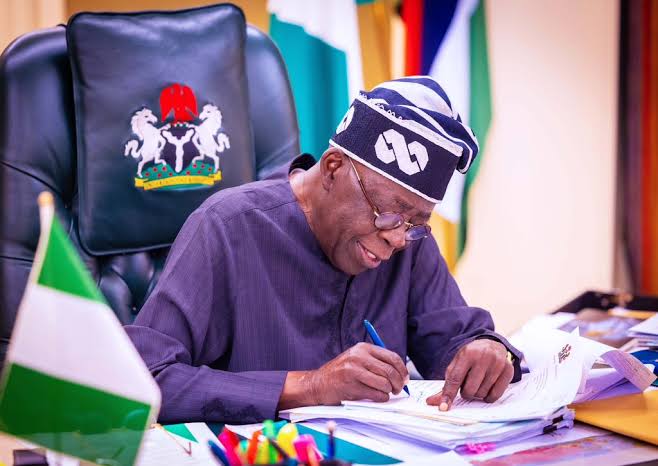
President Bola Tinubu has appointed Dr Mohammed Aminu the Registrar/Chief Executive Officer of the National Business and Technical Examinations Board (NABTEB).
The President has also appointed Mr Idris Olorunnimbe as Chairman of the Universal Basic Education Commission (UBEC) Board.
A statement by Bayo Onanuga Special Adviser to the President (Information & Strategy) informed that Dr. Aminu holds a Ph.D. in Automobile Technology and a Masters in Procurement and Supply Chain Management.
According to the statement, he brings 28 years of experience in teaching, administration, research, and policy development to his new role.
Until his appointment, he served as Director of Procurement at the National Agency for Science and Engineering Infrastructure (NASENI).
An advocate for vocational education and skills development, Dr. Aminu has authored multiple publications and presented research on innovative pedagogies, youth empowerment, and poverty alleviation. He is also a member of the Teachers Registration Council of Nigeria and the Automotive and Locomotive Engineers Institute.
President Tinubu urged the new NABTEB Registrar to leverage his vast experience to drive transformational leadership in the agency, ensuring it continues to assess and certify skilled Human Resources essential for Nigeria’s industrial growth.
The new UBEC chairman, Mr. Olorunnimbe brings years of experience in innovative leadership and commitment to youth empowerment and education.
Rasaq Olajuwon was named UBEC’s Deputy Executive Secretary (Technical), while Tunde Ajibulu will serve as Deputy Executive Secretary (Services).
As Group CEO of The Temple Company, which he founded in 2016, he has spearheaded transformative initiatives across education, entertainment, and sports.
He previously served on the Board of the Lagos State Employment Trust Fund (LSETF), where he chaired the Stakeholder and Governance Committees, driving impactful youth employment and entrepreneurship programmes
Mr Olajuwon, until his appointment, was Director of Administration and Human Resources at the Lagos State Infrastructure Maintenance and Regulatory Agency (LASIMRA), while Mr Ajibulu, a Fellow of the National Institute for Policy and Strategic Studies (NIPSS), is a Director at Tangent Construction Nigeria Limited and Partner at Covenant Consultancy Services.
President Tinubu enjoined the new appointees to strengthen the human capital needed to drive educational reforms and enhance service delivery at UBEC, ensuring greater access to quality basic education nationwide.
News
Abomination ! “I’ve forgiven my wife for sleeping with other men”, says Ijoba Lande

Ijoba Lande, the comedian, has revealed that he has forgiven Darasimi, his estranged wife, for “cheating on me”.
Lande recently claimed that Dara had left him after discovering her infidelity with at least 21 men in the entertainment industry, including Baba Tee.
Baba Tee admitted to having a brief sexual encounter with Dara during a game of ‘Truth or Dare’, but she denied the claim, arguing that she only sat on his lap.
In a recent Instagram live session with media personality Daddy Freeze, Lande said while he has forgiven his wife he will not take her back.
He also said that she would have no access to the child they share.
“She does not need to come to seek forgiveness from me, I have forgiven her. I forgave her because I see it as a part of my life journey,” he said.
“I also forgave her so that God will forgive my own sins as well but she can never come back to me.
“But everything she did to me is gone. However, she cannot have access to the child she had for me because it was her mum who handed the child over to me when I went to their house.”
-
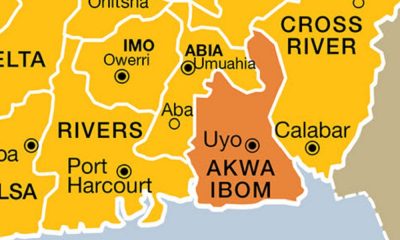
 Metro15 hours ago
Metro15 hours agoSAD! RCCG pastor allegedly machetes wife to death over infidelity
-

 News22 hours ago
News22 hours agoJust in: Tinubu hosts Wike, Fubara, Kyari, others
-
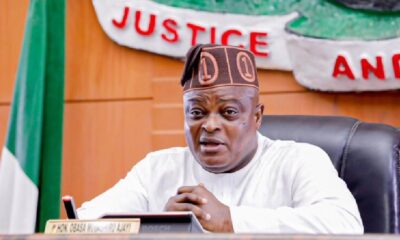
 News15 hours ago
News15 hours agoConfusion as Obasa suddenly changes counsel in Lagos Assembly case
-
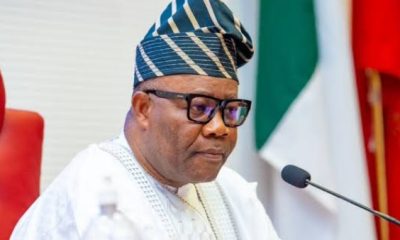
 News24 hours ago
News24 hours agoSuspension: Akpabio queries Court’s Jurisdiction To Hear Natasha’s Suit
-
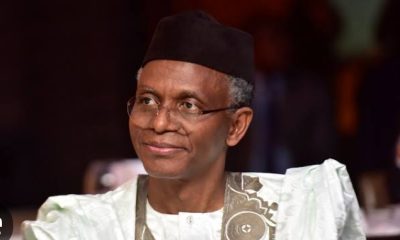
 News24 hours ago
News24 hours agoWhy I abandoned APC -El-Rufai
-
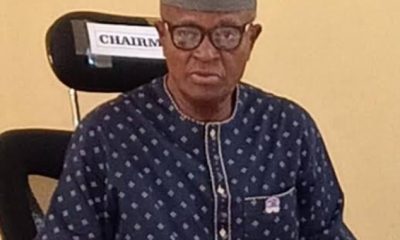
 News24 hours ago
News24 hours agoNatasha: Senator Ogunlewe confesses, says her beauty is the problem, men must react
-
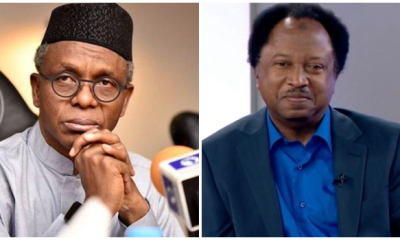
 News12 hours ago
News12 hours agoEl-Rufai Was A Political Liability, His Defection Of No Relevance- Shehu Sani
-
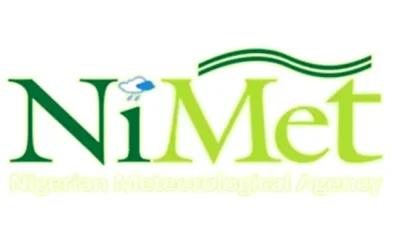
 News14 hours ago
News14 hours agoReasons behind extreme heat conditions in FCT, Niger, Kogi – NiMet






